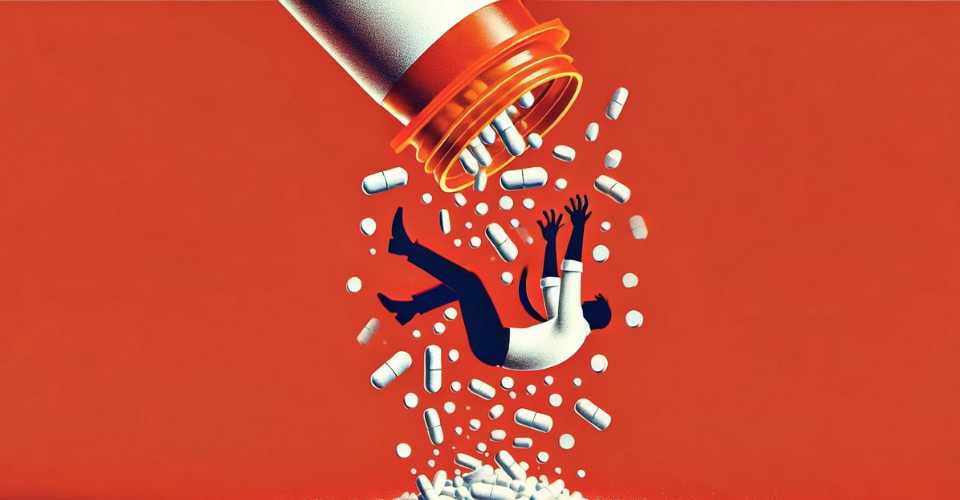Effect of a single dose of selective serotonin reuptake inhibitor (SSRI) on interoception
A recently published research in the journal Translational Psychiatry demonstrated that just one dose of antidepressants known as a selective serotonin reuptake inhibitor (SSRI) can reshape how the brain interprets internal bodily sensations. Serotonin, interoception (the sensing of internal bodily states), and anxiety are intricately linked since this phenomenon is more prominent in individuals with anxiety disorder.
Serotonin’s role in interoception
The researchers wanted to examine how serotonin, which is an important neurotransmitter, affects perception of internal body sensations. While it is known that serotonin can influence sensory processing like vision and hearing; its effect on normal interior sensations such as heart beats and stomach activity was not clear.
“There was not much understanding concerning the manner in which our brains apply sensory information from within our bodies”, said senior author Dan Campbell-Meiklejohn, who is also a senior lecturer working at Sussex University. “Checking out if serotonins are responsible for changing interoceptive feelings seemed like a good starting point.”
Methodology and Study Design
The study comprised of 31 healthy participants aged between 18-35 years, who were subjected to double-blind placebo-controlled randomized cross-over design. Each person took part twice; firstly after receiving citalopram (20mg), a single dose SSRI followed by another session while under placebo having at least one week difference between sessions.
Participants undertook Visceral Interoceptive Awareness (VIA) task to determine their level of awareness about feelings emanating from their hearts or stomachs while using functional magnetic resonance imaging (fMRI) to monitor their brain activities. In addition, there was control condition including visual stimuli aimed at separating the brain response towards interoceptive senses from external senses processing.
Principal Findings: Attenuated Neural Response
The study revealed that single citalopram dose considerably reduced neural response to interoceptive sensations. The researchers noted that increased serotonin levels caused decreased neural activity in amygdala and posterior insular cortex, two regions involved in processing sensory and emotional information.
Therefore, reducing neural response indicates serotonin helps the brain attenuate internal somatic afferent processing, thereby expanding its known actions outside by allowing for internal body sense perception.
Anxiety’s impact on interoception
What is interesting about this study was the dependence of serotonin effects on participant’s mood state. For example under placebo conditions, higher heart-focused anxiety led to an enhanced neurological reaction within the anterior insula as well as orbitofrontal cortex while it was significantly flattened when participants were given citalopram. This suggests that individual’s level of anxiety regulates modulation of interoception by serotonin.
Gut-brain axis
Further analysis indicated that changes in stomach-related processing after taking Citalopram is a significant predictor of anxiety change. Those participants who showed larger reduction in their neural response to stomach based sensations had some fluctuations in their anxiety levels. “It’s preliminary but ‘gut feelings’ are not just an expression”, added Campbell- Meiklejohn.
Implications and Future Directions
The current study investigated only single citalopram dosage impacts whereas actual clinical treatment spans longer durations. This raises concerns over long term effects of serotonergic modulation on interoceptive perception.
According to Campbell-Meiklejohn, “effects of a one-time dose in healthy subjects do not always predict what will happen when a patient takes them for weeks.” For example, further studies should examine long-term effects of SSRIs and their use with patients having patterns of anxiety disorders. Additionally, studying other antidepressants may shed more light on the underpinning mechanisms and possible benefits related to serotonin modulation in mental health.
Campbell-Meiklejohn explained: “I am curious as to whether the impact of serotonin on interoception is the mechanism by which SSRIs are therapeutic in anxiety, and if it explains other serotonin transmission effects like impulsivity and aggression.”
Study Authors and Publication
The study was named General and anxiety-linked influences of acute serotonin reuptake inhibition on neural responses associated with attended visceral sensation. It was written by James J.A Livermore, Lina I. Skora, Kristian Adamatzky, Sarah N. Garfinkel, Hugo D Critchley and Daniel Campbell-Meiklejohn.


























